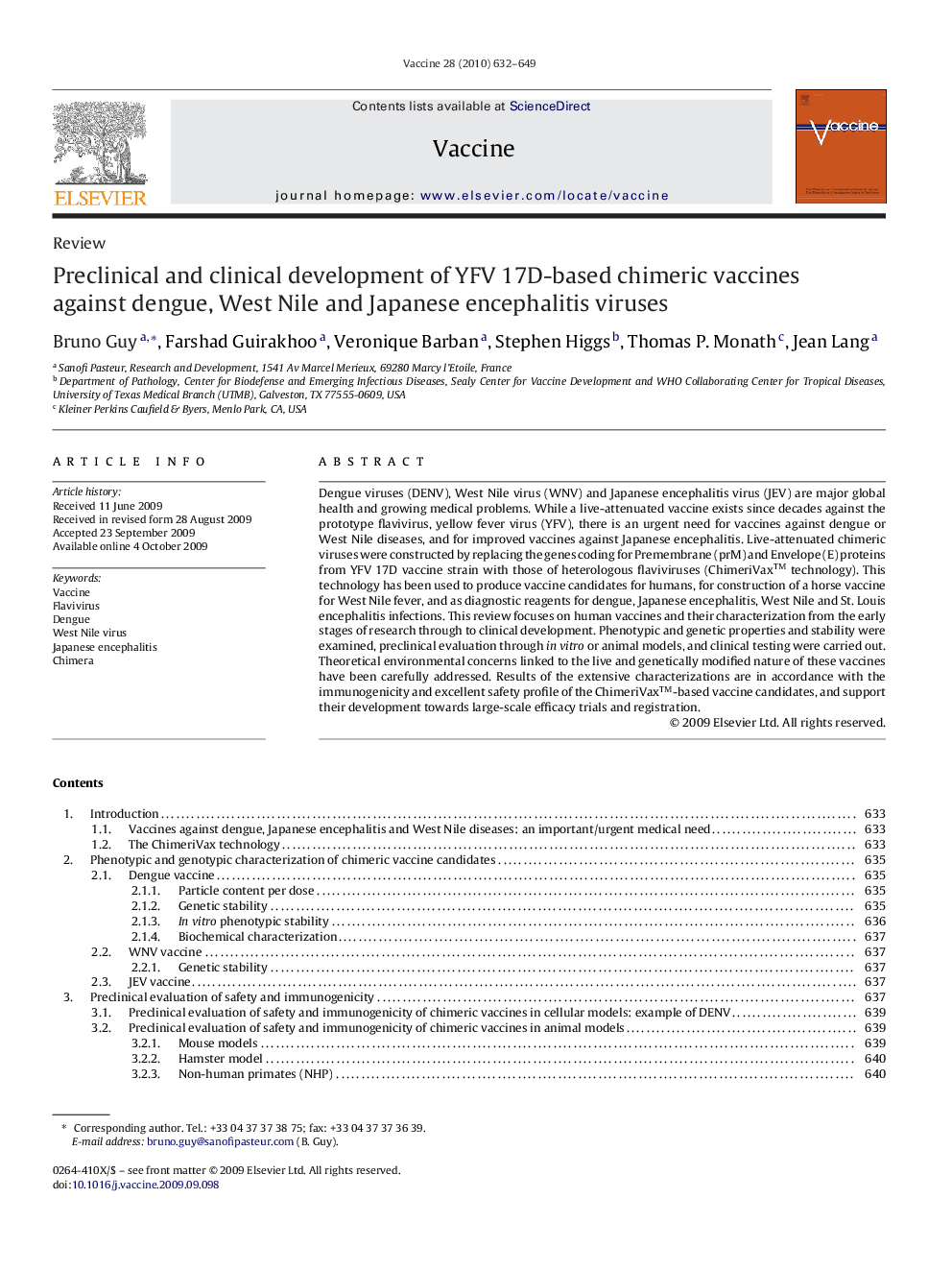| Article ID | Journal | Published Year | Pages | File Type |
|---|---|---|---|---|
| 2404850 | Vaccine | 2010 | 18 Pages |
Dengue viruses (DENV), West Nile virus (WNV) and Japanese encephalitis virus (JEV) are major global health and growing medical problems. While a live-attenuated vaccine exists since decades against the prototype flavivirus, yellow fever virus (YFV), there is an urgent need for vaccines against dengue or West Nile diseases, and for improved vaccines against Japanese encephalitis. Live-attenuated chimeric viruses were constructed by replacing the genes coding for Premembrane (prM) and Envelope (E) proteins from YFV 17D vaccine strain with those of heterologous flaviviruses (ChimeriVax™ technology). This technology has been used to produce vaccine candidates for humans, for construction of a horse vaccine for West Nile fever, and as diagnostic reagents for dengue, Japanese encephalitis, West Nile and St. Louis encephalitis infections. This review focuses on human vaccines and their characterization from the early stages of research through to clinical development. Phenotypic and genetic properties and stability were examined, preclinical evaluation through in vitro or animal models, and clinical testing were carried out. Theoretical environmental concerns linked to the live and genetically modified nature of these vaccines have been carefully addressed. Results of the extensive characterizations are in accordance with the immunogenicity and excellent safety profile of the ChimeriVax™-based vaccine candidates, and support their development towards large-scale efficacy trials and registration.
